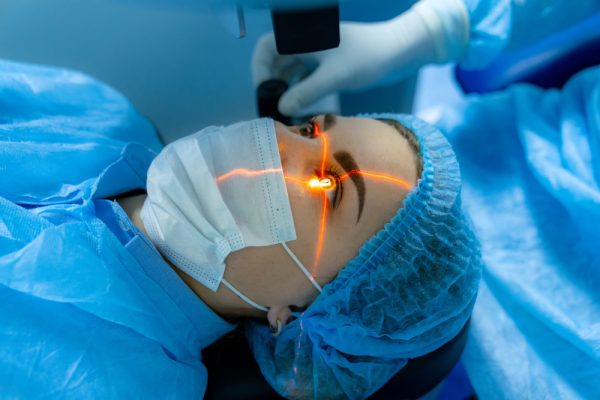
Babylon Health is no longer an operating company. It was one of the most prominent of the new private companies seeking to develop digital technology in the NHS. The company developed a smartphone app, known as GP at Hand, which included a chatbot to triage, diagnose and link with a GP for a consultation
Babylon got into serious financial difficulties in 2022 following its debut on the New York Stock Exchange in October 2021. In August 2023, Babylon closed its US operations and put much of its UK operations into administration. In September 2023, Babylon sold all its UK businesses to a newly set up division of eMed, eMed Healthcare UK. The sale included GP at Hand and the GP business and these have now been rebranded as eMed GP at Hand.
The company had launched products in the UK, Ireland, Rwanda and in the USA. In latter years, the company's major target was the US market.
Last updated: May 2024
Strategy
Current situation
Following catastrophic financial issues, by September 2023, Babylon Health had closed all of its US operations and sold all of its UK operations. It is now no longer in operation anywhere in the world.
From 2018 Babylon expanded rapidly into the US market and listed on the New York Stock Exchange in October 2021. By 2022, however, the company had hit serious financial difficulties. A deal for refinancing the company and taking it private again with major creditor AlbaCore Capital and MindMaze Group was announced in May 2023. But by August 2023, this deal had fallen through and Babylon's US operations were put in court-supervised liquidation. The only reason given for the failure of the deal was "unforeseen circumstances."
Babylon put its UK operations into administration and a buyer was sought. By the beginning of September, the administrators had sold the UK operations to a newly set-up subsidiary of eMed, eMed Healthcare UK. Financial terms of the sale were not fully disclosed. The business includes Babylon's telehealth business with companies, including a contract with Bupa.
The sale included GP at Hand (although this was not initially disclosed) and the GP business and these have now been rebranded as eMed GP at Hand.
CEO Ali Parsa had already moved to the US by the time of the collapse of the company. In 2021 he was listed on The Times Rich List, with an estimated £825 million fortune, however The Times reported in October 2023, that this fortune has now evaporated.
Political connections
In an article in The Times on the fall of Babylon, it noted that "Babylon’s deals with the NHS, which saw it receive at least £22 million over the past three years alone and helped it to woo investors, were in part due its links with the Conservative Party and the backing of Hancock, the health secretary from 2018 to 2021."
The article also noted that between 2015 and 2022 Babylon's executives had 17 separate meetings with a total of 19 ministers, including prime ministers Theresa May and Boris Johnson, and during their time at the treasury Philip Hammond and Liz Truss.
Matt Hancock praised Babylon in a supplement the company paid for in the Evening Standard newspaper in 2018. The paper was edited at the time by the former Tory chancellor George Osborne.
The Conservative party received more than £250,000 in donations from individuals and companies with shares in Babylon, including donations to Matt Hancock, who received £10,000 in 2019 to help fund his bid to become party leader.
History
Babylon was founded in 2013 by former investment banker Ali Parsa; until December 2012, Ali Parsa was CEO of Circle Health. Babylon Health’s business focused on the development of digital technology and artificial intelligence (AI) in healthcare. According to Babylon Health's website, its mission was "to transform healthcare for everyone on earth" with the company being founded "with a single purpose: To put an accessible and affordable health service in the hands of every person on earth."
Babylon reported on its website in early 2023 that the company is supporting a global patient network across 15 countries, with 16 languages available. By 2022, the USA, where it has acquired two companies in late 2021/early 2022, was its primary target.
The company's first smartphone app (an AI chatbot) was launched in February 2015 in the UK and it was also made available in Ireland, Rwanda and the USA. The company expanded in the USA and also had contracts in Saudi Arabia and China.
By asking a series of questions, Babylon's app can answer medical queries and can put the user in-touch (virtually) with a GP. The app is personalised by the use of a dashboard of the users health statistics acquired either by the phone (exercise regime etc.) or via supplemental devices. Babylon will supply users with blood testing kits for liver and kidney function, thyroid function, vitamin levels, bone density, and cholesterol. The results of the tests are then incorporated into the user’s app settings.
In the UK, the company offered a private service via its app; Babylon charged £59 for a one off GP appointment, £48 for an Advanced Nurse Practitioner, £48 for Physiotherapist, £45 Mental health Practitioner and £45 for a Pharmacist. Or an annual £249 could be paid, although this was not for unlimited appointments.
The early years
At its inception, Babylon's primary target in the UK was access to NHS patients. The company began a contract with NHS England for its GP at Hand app in 2015, when it launched the service in London. Thousands of patients registered with the service.
Babylon Health's business in London with GP at Hand boomed from 2015 to 2020. Its future in the UK was boosted in June 2018, with the appointment of Matt Hancock as Health and Social Care secretary. Mr Hancock was very enthusiastic about the use of new digital technology in the NHS and in July 2018 revealed that he was actually a subscriber to GP at Hand and found the service 'brilliant'. Much of Babylon's success in the UK now appears to be due to its funding of the Conservative party (see Political Connections above), which in turn boosted investor interest.
In September 2018, Matt Hancock gave a speech at Babylon's headquarters in which he told an audience of Babylon Healthcare staff he wants to help the company expand “so loads of companies can come do what Babylon are doing” in the NHS. In the same month, HSJ reported that via FOI requests the publication had found that at least 17 CCGs had met or corresponded with Babylon; some CCGs that did not reply to HSJ were known to have been in contact with Babylon or GP at Hand.
Initially, Babylon Health benefited from certain payments available to surgeries that register patients in London and from the rules surrounding the registration of out-of-area patients. These benefits have now gone due to changes in the new five year GP contract announced by NHS England in January 2019. Two changes to payment rules which started 1 April 2019 reduced the company's income. The changes will mean that certain extra payments apply only to patients living in the surgery catchment area and that the London adjustment payment will apply only to patients living in London, rather than those registered to a London-based practice.
However, the most significant change discussed in the GP contract was a review of the out-of-area registration rules. Changes to reduced the number of patients Babylon could register, which had a significant impact on the company's business strategy.
As a result of the consultation, in September 2019 a joint board of NHS England and NHS Improvement published new guidelines for digital-first GP-providers. The changes came into force in April 2020, now when the list of out-of-area patients reaches a certain threshold, Babylon's contract would have had to be split and a new practice list for GP at Hand in another area automatically created with a new CCG contract, where the company would need to provide premises, be part of a local network and meet all service requirements. Babylon had around 60,000 out-of-area patients, who had to be split into 17 different contracts.
For a brief time, a major part of Babylon's UK strategy was expanding the GP at Hand service to other areas of the country.
After London, the company targeted Birmingham for expansion. There were objections, but despite these, NHS England gave the go-ahead for Babylon Health to expand to Birmingham and a launch took place in June 2019. Patients in Birmingham were initially registered at the Fulham practice in London, until the company set up a physical clinic in Birmingham. However, by November 2022, Babylon had abandoned its business here as "financially unsustainable". The company also abandoned its plans to expand to Manchester.
NHS contracts
Babylon worked to expand its business in the NHS, outside of the GP at Hand app, and in January 2020, the company announced a major partnership with the Royal Wolverhampton Trust in the Midlands to create and launch “digital-first integrated care” across the region. The 10-year partnership was to involve the development of technology that will allow patients to access NHS primary, secondary and community healthcare services through a single app. The trust runs 10 GP practices as well as acute and community services. This partnership was terminated by Babylon eight years early in 2022 (see contracts).
A partnership with University Hospitals Birmingham Trust, which began in May 2019, covered the launch of the symptom checker service Ask A&E, whose use the trust hoped would reduce the pressure on its A&E and hospital services. This partnership was also terminated in 2022.
The Covid-19 pandemic gave Babylon plenty of opportunities for accessing the NHS (see below for details).
Failure in the UK
The company went public on the US markets in late 2021 and made acquisitions of companies in the USA. There then followed severe financial difficulties (see Finances for more details). In May 2022 Babylon Health’s CEO Dr Ali Parsa said that the company needs to be “very cautious” about expanding its business in the UK as it loses money on every patient.
In July 2022, Babylon announced "cost reduction actions" that primarily targeted its business in the UK. In August 2022, the company terminated its contracts with University Hospitals Birmingham Foundation Trust and The Royal Wolverhampton Trust (RWT). Babylon has decommissioned its symptom checker service Ask A&E, and has ended a wider 10-year partnership with RWT eight years early. The company says the collaborations are no longer economically viable.
In August 2022, the company's CFO, Charlie Steel, said the company has been a ‘victim of [its] own success’ and it cannot ‘continue to fund the NHS forever’. Referring to its GP at Hand service, he said "people are using the service significantly more than the national average, because you can get appointments within hours rather than having to wait two weeks. So, in some ways we’re financially a victim of our own success." Mr Steel said there are plans to “stop losing money” for each patient Babylon takes on, one of which includes increasing appointments from four to five an hour. At the end of October 2022, Babylon terminated its Birmingham GP at Hand service, leaving 5,000 patients to find a new GP. Babylon told Pulse its Birmingham operation were ‘no longer financially sustainable.’
Chronic conditions
Babylon did make an investment of £100 million in the development of digital tools to monitor chronic conditions in 2018.
Litigation
One facet of Babylon's 'strategy' in the market was resorting to litigation in the face of criticism. In December 2017, HSJ reported that the company had failed to prevent the CQC publishing an inspection report of the company's service.
Babylon had filed a legal action in the High Court, challenging the publication of the inspection report; the CQC stated that the report was “not particularly adverse”. The court rejected Babylon's request for an injunction to prevent publication and the report was published. However, the court also heard that the CQC had agreed to remove a large part of the original report before it was published.
In September 2018, HSJ detailed various other attempts by the company to silence criticism and even reporting. These include Babylon's angry reaction to a CCG's board papers that documented doubts about the strengths of its product and Babylon's efforts to exclude HSJ journalists from an event at its headquarters at which Matt Hancock was speaking. The publication's journalist was only allowed in after the intervention of Mr. Hancock.
US Strategy
Babylon made major investments in the USA and it became its primary target market. In 2020, Babylon launched Babylon 360 in the USA, an app-based service giving 24/7 access to healthcare and personal health goals. Access to therapists and healthcare professionals via the app is available through select healthcare insurance plans. By mid-2021 health insurance plans in California, Nevada, New York and Iowa were signed up. In June 2021, CEO Parsa said that this market had already made up more than 80% of its revenues for the year so far.
In late December 2021, Babylon acquired the US company Higi Holdings, a consumer health engagement company and in January 2022, the company DaytoDay Health, based in Boston, MA. DayToDay has developed technology to support patients newly discharged from hospital and pre-op patients. The system provides virtual care including targeted education and clinical support from a personal care team before or after clinical visits, hospitalizations, or surgeries. Despite this financial outlay on acquisitions, all was not well financially.
In October 2021, the company went public on the New York Stock Exchange via a merger with Alkuri, a special purpose acquisition company (SPAC) with an implied equity value for Babylon of about $4.2 billion. Then the company's share price plummeted and in November 2022, CEO Ali Parsa described this decision to go public in the US and the company’s stock market performance since as an “unbelievable, unmitigated disaster” that has required a significant restructuring of the business. Eventually, the company's shares became almost worthless and Babylon Health announced an agreement in May 2023 to be taken over by its major creditor AlbaCore Capital and become a private company again. This agreement fell through and in August 2023 Babylon's became insolvent and it began winding up its US operations.
Other countries
In China, Babylon teamed up with Tencent’s WeChat social messaging platform in April 2018. The deal means the one billion WeChat users can enter their symptoms to Babylon’s app, which will then send back healthcare advice. In Saudi Arabia, Babylon had a contract with the Kingdom to provide its technology to the population. Babylon launched its smartphone app in Rwanda in 2016. In November 2017, a partnership with the Rwandan government and the Bill & Melinda Gates Foundation, led to the launch of the app to the entire population of Rwanda. The deal was part of a drive by the government of Rwanda to deliver affordable, accessible healthcare to the people of Rwanda.
In September 2018, Babylon partnered with Telus, a Canadian company, to provide doctors and patients in Canada with access to virtual healthcare technology solutions and services.
Financials
Babylon Health was listed on the New York Stock Exchange in October 2021. In May 2023, the company was to be taken private again by its major creditor AlbaCore Capital. However, this deal with Albacore and another financier MindMaze, fell through and Babylon decided to wind down its US operations. The only reason given for the failure of the deal was "unforeseen circumstances."
From 2013 to 2021 and its stock market float in New York, Babylon raised $1.2 billion from investors, which made it one of the most highly funded medical start-ups in the world.
In September 2023, the administrators of the UK business sold Babylon's UK business, with the exception of GP at Hand, to eMed Healthcare UK, a newly formed subsidiary of eMed. Financial terms were not disclosed.
Babylon reports that the GP at Hand service continues to operate, however there is a lot of uncertainty about its future.
HSJ was told by one source in primary care that: “Either they find someone to take over their UK operation or if not then the NHS side has a big problem as they have a lot of patients in London. If the GP side ceases to trade, you can’t easily rehome 100,000 patients especially as their model is so different from others and needs its digital platforms.”
Financial data
The most recent annual financial data is for the full year ending 31 December 2022. The company now reports its finances on its website in US dollars and Babylon has transitioned to US domestic reporting company status as of January 1, 2023.
Latest results are for the three months ended March 31, 2023. Total revenue was $311.1 million compared to $266.4 million in the comparable three months in 2022. Net loss was $63.2 million, compared to net loss of $29.1 million in Q1 2022.
Babylon used to file accounts for its UK-based company Babylon Healthcare Services Ltd. The most recent accounts on Companies House are for the year to December 31, 2021. In 2021 revenue of £24.4 million was reported up from £17.3 million in 2020. The company made a profit of £1.3 million, compared to £839,629 in 2020.
Prior to the public listing, according to filings on the UK's Companies House there were three companies linked to Babylon Health:
Babylon Healthcare Services Ltd (company no: 09229684) - the operating company of Babylon Health registered in the UK. According to Companies House its single director is Ali Parsadoust.
Babylon Partners Ltd (08493276) - with a single director Ali Parsadoust.
Babylon International (11210368) - the newest company incorporated in February 2018, with Ali Parsadoust as director.
In addition, registered in Jersey, with details available from the Jersey Companies Registry is:
Babylon Holdings Ltd, registered at 31 Esplanade, St Helier, JE1 1FT at a office provided by Nedgroup Trust.
In financial filings submitted to Companies House by Babylon Healthcare Services Ltd, this company is given as a subsidiary of Jersey-based Babylon Holdings Ltd, but the ultimate controlling party is ALP Partners Ltd, a company run by Nedgroup Trust on behalf of the Parsa Family Trust. The consolidated financial statements of Babylon Holdings Ltd are not available to the public.
Going public and investors
In June 2021 Babylon Healthcare took its first steps in going public in the USA with an investment deal that gave the company an enterprise value of $3.6bn, with an additional $575m in gross proceeds. This included $270m in private placement from new investors including Swedbank Robur, Sectoral Asset Management and data-analytics firm Palantir, as well as existing investors such as Kinnevik and Alkuri Sponsors.
In October 2021, the company went public on the New York Stock Exchange via a merger with Alkuri, a special purpose acquisition company (SPAC) with an implied equity value for Babylon of about $4.2 billion.
In June 2022, the FT reported that Babylon and many other small cash-intensive companies who took this approach to listing on the market, have suffered a massive fall in value as investors sell-off the shares as the companies fail to fulfil the rosy-projections given when they went public. Babylon’s market capitalization fell more than 90%, giving the company a market value of about $334 million. Its share price fell from around $11 in October 2021 to around $1 in June 2022. They then became almost worthless.
As a result of financial difficulties, in May 2023, Babylon Health began the process of withdrawing from the New York stock exchange and going private once again. Its biggest creditor AlbaCore was to undertake “a restructuring and recapitalisation” of the business, which would have taken Babylon Health private again. Shareholder approval of the deal was not needed under the debt agreements Babylon already had with AlbaCore, which had already loaned Babylon $300 million, and was to extend $34.5 million in new funding. AlbaCore partnered with the Swiss health tech startup MindMaze for the agreement. This agreement fell through by August 2023, for undisclosed reasons. As a result, Babylon began winding up its US operations and put its UK businesses into administration.
Earlier funding
In August 2019, the company closed on a $550 million round of funding. According to Babylon, this is the largest-ever fundraise in Europe or the US for digital health delivery. The round brings together a number of strategic and financial investors, including PIF (Saudi Arabia’s Public Investment Fund); a large U.S.-based health insurance company (which might be Centene Corporation, although Babylon is not disclosing the name); Munich Re’s ERGO Fund; and returning investors Kinnevik and Vostok New Ventures (VNV Global).
In January 2016 Babylon raised $25 million via the issuing of series A shares. The financing was led by Swedish investment group AB Kinnevik with other participants including the founders of BXR Group, a multi-billion dollar global investment group; Demis Hassabis and Mustafa Suleyman, the founders of DeepMind, the British artificial intelligence company acquired by Google, and Hoxton Ventures, the fund established to bridge European companies to Silicon Valley.
In April 2017, Babylon raised $60 million in a further funding round. Investors in the new round include, Sawiris, an Egyptian billionaire business family, Investment AB Kinnevik, NNS holdings, and Vostok New Ventures.
Contracts
Babylon Health had some large contracts with NHS organisations and contracts covered its GP at Hand app, its Ask A&E triage tool, and other digital services. The Ask A&E triage tool allowed patients to input their symptoms, which then led to advice being given, such as attending A&E, calling an ambulance, booking a GP appointment, visiting a pharmacy, or staying at home and monitoring symptoms. The Ask A&E app has now been discontinued.
Royal Berkshire Foundation Trust
In May 2020, the Royal Berkshire FT signed a 12 month agreement with Babylon for use of its Ask A&E triage tool developed by the company. Ask A&E was made available on the trust's website. The trust believed that the tool would take pressure off the NHS 111 service during the coronavirus pandemic. The cost of the contract was not disclosed. The need for the Ask A&E tool was questioned as it duplicates the current NHS 111 service. No larger deal was signed.
A spokesman for the Royal Berkshire Trust told The Times: “Babylon Health were contracted to deliver our emergency department’s triage service as part of a pilot scheme to reduce attendances. At the end of the pilot, we found that there had been no significant reduction in attendances, and the launch of the 111 service fulfilled many of the same functions as the triage service — as a result, the contract was not renewed.”
Wolverhampton Hospitals Trust
A10-year partnership with Wolverhampton Hospitals Trust to launch "digital-first integrated care" across the region was terminated in August 2022, eight years early. According to the announcement from Wolverhampton and Babylon, the partnership would have allowed patients to access NHS primary, secondary and community healthcare services through a single app.
In April 2020, the Royal Wolverhampton Trust and Babylon made available Babylon's newly developed Covid-19 app. The app was made available to staff immediately from 3 April and was then rolled out to the general public in the Wolverhampton area over the next week. Royal Wolverhampton NHS Trusts is also using the Ask A&E triage tool. The Ask A&E triage tool has now been withdrawn.
University Hospitals Birmingham Foundation Trust
An agreement with UHBFT was begun in April 2020 to use the company's Ask A&E triage tool and the Covid-19 app. The agreement was terminated in August 2022.
GP at Hand
Babylon Health's GP at Hand smartphone app began operating in London from a single Fulham surgery site in 2016. In November 2017 Babylon Health, under a contract with NHS England, launched GP at Hand with a further five sites in London. The company promised that patients would be able to 'book an appointment within seconds' and have 'a video consultation with an NHS GP typically in under two hours of booking, anytime, anywhere'.
Babylon worked with the GMS practice of Dr Jefferies and Partners, based in Lillie Road, Fulham in West London. Under the Government’s ‘GP Choice’ scheme, which allowed GMS practices to sign up patients from outside their traditional boundaries, Babylon was able to target patients who live across London and those who work in zone 1 to 3. Patients who signed up for GP at Hand were de-registered from their own GP’s list and re-registered on the list of Dr Jefferies and Partners as an out-of-area patient. In the first four months of GP at Hand the Lillie Road Medical Centre's total list size increased from 4,970 to 23,997.
Data from NHS Digital released in April 2018 showed that a total of 85% of new registrations since November were patients aged between 20 and 39 years old. Of all new patients signing up since GP at Hand was opened up to out-of-area patients, 94% were aged between 20 and 49.
By April 2018, GP at Hand had 200 GPs on its roster, working for its private and NHS services. According to Pulse, Babylon offers a full-time salary of around £90,000 to work from home, or £108,000 if office based. The company also told pulse that it will have over 40,000 users of the NHS GP at Hand service once it has finished processing applications.
In November 2018, NHS England lifted all restrictions on the type of patient that could register with GP at Hand.
In June 2019, Babylon Health was granted primary care network status by NHS England, however this was only a temporary arrangement until April 2020 when new out-of-area rules will be applied, following a review by NHS England.
Babylon had plans to expand to further cities, first Birmingham then Manchester, but although the Birmingham expansion launched in summer 2019, it was terminated in November 2022. Babylon Health abandoned its plans for Manchester.
Babylon insisted that the GP at Hand service would be unaffected by the failure of the rest of Babylon's business in mid-2023 (see above). If GP at Hand failed over 100,000 patients in London would have to find a new GP. The acquisition of the business by eMed in September 2023 led to a rebranding as eMed GP at Hand.
NHS 111 trial
Babylon's smartphone app was one of the number of apps that NHS England trialed across England. For six months from the beginning of January 2017, the 1.2 million inhabitants of north-central London, including the boroughs of Camden, Islington, Enfield, and Barnet, had access to Babylon Health’s app that they could use instead of phoning NHS 111.
The app performed triage for urgent but non-life-threatening conditions. Users typed in their symptoms and the app decided how urgent their medical needs were. After each text, the app, responds with further questions to get more details of the problem, each time consulting a database of every symptom and illness in the world.
After the trial, however, the app was not adopted by the North West London Collaboration of CCGs. In a statement, the organisation noted that in focus groups patients were more interested in using the app to avoid waiting lists. The report from the CCGs noted that “Patients who might use the app could mainly do so because they believed it would get them faster access to GP appointments…..The focus groups had also commented that there is a risk of some people gaming the symptom checker to achieve a GP appointment.” This could involve overstating symptoms to get an appointment sooner. As a result, the CCGs decided to discontinue testing.
NHS England's report on the four online tools, including Babylon's NHS 111, published in January 2018, found that all four provided a “safe service”, were far cheaper and faster than a phone call, and “did not seemed to generate extra demand” for 111 services.
An investigation by HSJ published in September 2018, found that Babylon had spoken to at least four CCGs (Dorset, Southern Derbyshire, Hardwick, North Derbyshire, and Dorset) about adopting its NHS 111 Online product. However, NHS England has ordered CCGs to pick the NHS Pathways system.
Concerns
There were a large number of concerns surrounding Babylon Health, its technology and the way it does business, and more recently its financial security.
Financial instability
Financial security proved to be the major issue for Babylon. Following a disastrous listing on the New York Stock Exchange in October 2021 (see financial section for details), Babylon had serious financial difficulties. In August 2023, Babylon put the US business in Chapter 7 insolvency and began laying off staff and closing operations, and its UK operations into administration.
The administrators, Alvarez & Marsal, has said that Babylon Healthcare Services Limited has been sold to the newly set-up eMed Healthcare UK, a subsidiary of eMed. This covers the majority of Babylon Health, including a preventative telehealth practice that currently serves some 700,000 people in the UK through contracts with major providers like the private healthcare group Bupa. It also includes GP at Hand which was rebranded as eMed GP at Hand.
There were major concerns over what would have happened if GP at Hand hadn't found a new owner. One primary care source told HSJ: “Either they find someone to take over their UK operation or if not then the NHS side has a big problem as they have a lot of patients in London. If the GP side ceases to trade, you can’t easily rehome 100,000 patients especially as their model is so different from others and needs its digital platforms.”
Coronavirus antibody test kit
On 15 May 2020, Babylon announced the launch of a home Covid-19 antibody test kit that had been developed by Abbott. Babylon reported that it could be used at home using blood taken from a finger prick, which is then sent off to a laboratory. The cost was £69. Abbott immediately announced that the kit was not for use at home as its test “was developed for use by laboratory professionals using a venous blood sample that is taken by a healthcare provider. It is not a home test and it should not be conducted with a finger stick blood sample.”
By 27 May, the Medicines and Healthcare products Regulatory Authority (MHRA) had contacted Babylon and all the private providers that were selling the kits for use as home testing kits to tell them to stop while they assessed their accuracy. Although the kit made by Abbott had been approved by Public Health England (PHE) it was not for home use.
Cherry-picking
Babylon advertised its GP at Hand service being suitable for ‘people of all ages whether you are in good health or not’, but its site listed 10 types of patients that the service may be ‘less appropriate for’. This includes patients with complex mental health conditions, learning difficulties, pregnant women or frail elderly. Babylon Health has noted that NHS England originally put restrictions on the type of patient that it could sign up; in November 2018, NHS England lifted all restrictions on the type of patient that can register with GP at Hand.
Both the RCGP and BMA criticised the scheme for 'cherry picking' younger, healthier patients, leaving other GP practices to deal with patients requiring more complex care. Even with the restrictions lifted, this type of digital service is more likely to appeal to a younger, fitter, healthier demographic and is unlikely to be used by older patients with complex needs.
A report in November 2018 by GP Online confirmed the predictions that the GP at Hand service will attract younger, fitter patients. It found that in April 2017, 16% of patients at the Lillie Road surgery were aged between 20 and 29 years old, but by November 2018 this had risen to 49%. Of the 31,519 new patients who have signed up with GP at Hand over the previous 12 months, 87% are aged between 20 and 39 years old. Patients that are over 65 now made up just 1% of the population registered with the service - compared with around 10% in April 2017.
Despite the company registering mainly younger and fitter patients, it soon became clear that this did not mean they would not contact their GP frequently and use the service heavily. The ease with which a GP could be contacted meant patients took advantage of this. As a result Babylon's patient population was high-maintenance and expensive, not what Babylon expected, and it was losing money on each patient.
Destabilization of local health economy
Warnings that Babylon Health's business strategy would destabilise the local health economy proved correct with Hammersmith & Fulham CCG, where GP at Hand is based, going into serious deficit.
The possibility of destabilisation was discussed In a March 2018 article written for Pulse, Dr Simon Brownleader, chair of Tower Hamlets GP Care Group, Dr Sam Everington, chair of Tower Hamlets CCG and Dr Jackie Applebee, chair of Tower Hamlets LMC, discussed the damage done to the local CCG by the GP at Hand model of business.
The article notes that GPs rely on risk pooling and cross subsidy in that the capitation fee for younger fitter patients, who consult less often, provides the funds to care for the more complex and elderly patients. Operating models like GP at Hand threaten this system and risk diverting resources away from those who need them most to those who need them least.
In the same month, Pulse reported that the success of GP at Hand was leaving the local health service with a deficit. Hammersmith and Fulham CCG has said the growth of the service could drive up costs by more than £10m and push it into deficit during 2018/19. In May 2018 the CCG reported that it would need an additional £18 million in extra funding to cope with the influx of patients due to the GP at Hand app. In June 2018, the CCG was given £1 million by neighbouring CCGs to help it cope with the influx of patients.
In January 2019, Hammersmith and Fulham CCG reported a deficit of £2.5 million. The CCG stated that Babylon GP at Hand is the ‘key driver’ of cashflow issues, and it expects the situation 'to worsen in the near future'. In January 2019 the CCG noted in its board papers that Babylon continues to run advertising campaigns across London for new patients and so things are likely to get worse. The board papers also noted that the costs associated with the Babylon GP at Hand practice could ‘jeopardise' other health and care services in the area. Pulse reported in February 2019 that the CCG is in discussions with NHS England over how and when the costs associated with GP at Hand will be recovered.
In 2019/20 GP at Hand patients are calculated to add £21.6 million to the CCG's costs. After discussions, NHS England has agreed to meet these costs. The local Hammersmith MP Andy Slaughter is pushing for the CCG to be compensated £35 million, the total costs incurred by Hammersmith and Fulham CCG since GP at Hand was opened up to out-of-area patients in November 2017 to the end of 2019/20.
Deskilling of GPs
There were concerns about the affect on GP skill levels; GPs that move to work for Babylon will not face the great variety of cases seen in a normal practice. In particular, the GPs will lose skills in the area of care of the elderly and frail and in mental health.
In an article for Pulse, Tower Hamlets LMC chair Dr Jackie Applebee, who said practices in her area have so far lost around 1,500 patients to GP at Hand, said: 'I can see why it is attractive to go and work for them, because they are offering flexible working hours, I imagine a good salary, and it's an easy workload if it's young single-issue patients. But it's the long-term impact of dividing the GP workforce into those who look after complex patients and those who look after the more simple patients. It de-skills us as a profession.'
Referral Problems
In June 2018, the HSJ reported that there are issues with referrals for mental health services and community care. Other London CCGs and providers have said they are unable to accept referrals. After Hammersmith and Fulham CCG intervened and agreed to pay for the patients’ treatment, most neighbouring CCGs and services agreed to accept referrals. However, some have continued to refuse. The issue is complicated as the majority of patients registered with GP at Hand in Hammersmith & Fulham CCG live outside the CCG area. H&F CCG is now having to pay for a large amount of out-of-area treatment.
Babylon was highly critical of the CCGs refusing referrals, noting in a statement that “some senior individuals in a few London CCGs and providers” were to blame, for placing “their narrow business interests or ideology ahead of patient care and NHS policy”.
Safety and performance concerns
Babylon published a research paper comparing its AI with a doctor or nurse. The paper was published on the non-peer reviewed site arXiv. It showed Babylon's AI outperforming doctors and nurses in laboratory conditions. In September 2017, however, David Wong, professor of health informatics, and Hamish Fraser, associate professor in eHealth, at the Leeds Institute of Health Sciences together with WiredUK found Babylon Health's app the "least accurate" in a test of three symptom checker apps - Babylon’s AI, Ada and You.MD.
In an article for Wired, the academics noted that there needs to be stronger governance around this type app: "The great concern is that somebody puts information in and they have a serious illness and they get reassurance they're ok and that's a false negative situation, which could be life threatening."
An anonymous NHS doctor who Tweets under the name @DrMurphy11 tested the Babylon app repeatedly, highlighting problems, including when he posed as 48 year old, 40 a day male smoker who wakes “with a shoulder pain radiating down his arm” - the Babylon app told him his symptoms could be managed at home with a cold compress and painkillers, when a heart attack should have been considered. Other footage shows a bizarre series of triage questions for the symptom "I have a nosebleed". Dr Murphy has a series of tweets known as the 'bad bot threads' that highlight the issues with the Babylon Health AI.
In July 2017, an inspection of the service provided by the Babylon app resulted in a critical report, which raised concerns about the potential for prescription misuse and lack of information sharing with a patient's primary GP. However, the report also stated that most services “were safe, effective, caring, responsive and well-led.” Babylon Health tried to suppress the publication of this report, taking the CQC to the High Court in December 2017. The high court ruled that the report could be published; Babylon then criticised the CQC and questioned whether the regulator has the ability to regulate digital health services. In late December 2017, Babylon dropped the legal case against the CQC and agreed to pay £11,000 in legal costs.
In June 2018, Babylon Health made a claim that its GP at Hand app is able to provide clinical advice to patients that is ‘on par’ with doctors. Babylon tested the app using diagnostic questions from trainee GP exams and reported that its AI scored 81% compared to an average mark for real-life doctors of 72%. The RCGP said the claims were ‘dubious’.
The GP at Hand app underwent an independent evaluation by Ipso Mori, commissioned by NHS England, however this will not be able to make robust conclusions about its safety and effectiveness. It also did 'not include a comprehensive assessment' of the artificial intelligence (AI) symptom checker the service uses to triage patients.
Ipsos Mori identified the limitations in an interim report published by Hammersmith & Fulham CCG. The final report on the service was published in March 2019.
The UK’s medical device regulator, MHRA, admitted it had concerns about Babylon Health's Chatbot in 2020. It made the admission in a letter sent Dr David Watkins (@DrMurphy), a consultant oncologist, who’s been raising the alarm about Babylon’s approach toward patient safety and corporate governance since 2017.
Babylon Health's closet rival in the area of symptom checkers, Ada Health, commissioned a study assessing the leading symptom tracker apps published in December 2020. Ada Health's symptom tracker came out top for accuracy, quite a way ahead of the others from Babylon, Mediktor, Symptomate and Your.MD.
Security issues
In June 2020, Babylon had to admit that its GP at Hand app had suffered a security breach. Some patients were able to see the video consultations of numerous other patients. Babylon corrected the error and its statement said only three patients had had the access to video consultations. The breach was referred to the Information Commissioners office and it is now under investigation.
Misleading advertising
In October 2018 the Advertising Standards Authority (ASA) upheld complaints about Babylon Health's adverts on the Underground in London. The complaints were that the ads were misleading because they did not make clear that in order to use the services advertised consumers must leave their current GP; and the GP at Hand service, including its in-person consultations, was only available to consumers who lived or worked in the catchment area of specific GP surgeries. The complainants also challenged whether the claim “See an NHS GP in minutes” in the ads was misleading. The ASA told Babylon Health that the ads must not appear again in their current form.
By January 2019, six other complaints made to the ASA regarding Babylon Health's advertising had been resolved informally, according to the ASA website.








